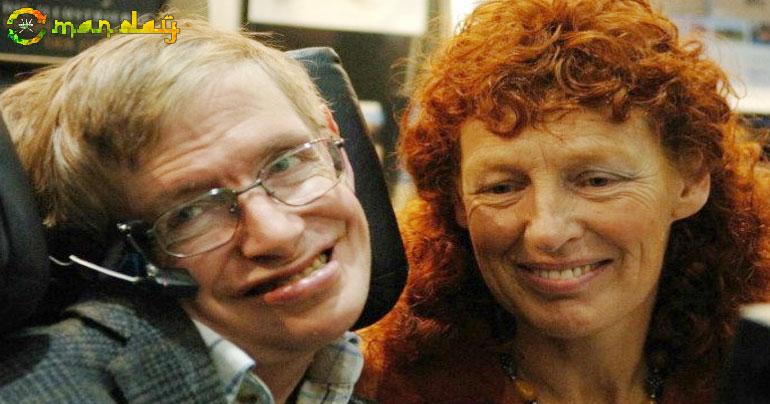Stephen Hawking: Here are 10 things you probably didn’t know about the genius
Stephen Hawking, who sought to explain some of the most complicated questions of life while himself working under the shadow of a likely premature death, has died at 76. Hawking's formidable mind probed the very limits of human understanding both in the vastness of space and in the bizarre sub-molecular world of quantum theory, which he said could predict what happens at the beginning and end of time.
His work ranged from the origins of the universe itself, through the tantalising prospect of time travel to the mysteries of space's all-consuming black holes. But the power of his intellect contrasted cruelly with the weakness of his body, ravaged by the wasting motor neurone disease he contracted at the age of 21. Hawking was confined for most of his life to a wheelchair. As his condition worsened, he had to resort to speaking through a voice synthesiser and communicating by moving his eyebrows.
The disease spurred him to work harder but also contributed to the collapse of his two marriages, he wrote in a 2013 memoir "My Brief History." In the book he related how he was first diagnosed: "I felt it was very unfair - why should this happen to me," he wrote. "At the time, I thought my life was over and that I would never realise the potential I felt I had. But now, 50 years later, I can be quietly satisfied with my life."
10 things you probably didn't know about Stephen Hawking
- Born on January 8, 1942, 300 years to the day after the death of the father of modern science, Galileo Galilei, he believed science was his destiny.
- Most of his life was spent in a wheelchair crippled by amyotrophic lateral sclerosis (ALS), a form of motor neurone disease that attacks the nerves controlling voluntary movement. Remarkably, Hawking defied predictions he would only live for a few years, overcoming its debilitating effects on his mobility and speech that left him paralysed and able to communicate only via a computer speech synthesiser.
- Much of his work centred on bringing together relativity -- the nature of space and time -- and quantum theory -- how the smallest particles in the Universe behave -- to explain the creation of the Universe and how it is governed. "My goal is simple," he once said. "It is complete understanding of the universe, why it is as it is and why it exists at all."
- In 1974, he became one of the youngest fellows of Britain's most prestigious scientific body, the Royal Society, at the age of 32. In 1979 he was appointed Lucasian Professor of Mathematics at Cambridge University, where he had moved from Oxford University to study theoretical astronomy and cosmology. A previous holder of the prestigious post was the 17th-century British scientist Isaac Newton.
- Hawking eventually put Newton's gravitational theories to the test in 2007 when, aged 65, he went on a weightless flight in the United States as a prelude to a hoped-for sub-orbital spaceflight. "I believe life on Earth is at an ever-increasing risk of being wiped out by a disaster such as sudden global warming, nuclear war, a genetically engineered virus or other dangers... I think the human race has no future if it doesn't go into space," he said.
Read more:Stephen Hawking dies aged 76, family says
- More recently he said artificial intelligence (AI) could contribute to the eradication of disease and poverty, while warning of its potential dangers. "In short, success in creating AI could be the biggest event in the history of our civilisation. "Alongside the benefits, AI will also bring dangers, like powerful autonomous weapons, or new ways for the few to oppress the many," Hawking said in 2016, at the opening of a new AI research centre at Cambridge University.
- His 1988 book "A Brief History of Time" sought to explain to non-scientists the fundamental theories of the universe and it became an international bestseller, bringing him global acclaim. It was followed in 2001 by "The Universe in a Nutshell". In 2007, Hawking published a children's book, "George's Secret Key to the Universe", with his daughter, Lucy, seeking to explain the workings of the solar system, asteroids, his pet subject of black holes and other celestial bodies.
- Hawking first married Jane Wilde in 1965 and had three children. The couple split after 25 years and he married his former nurse, Elaine Mason, but the union broke down amid allegations, denied by him, of abuse.
- The love story between Hawking and Wilde was retold in the 2014 film "The Theory of Everything", which won Britain's Eddie Redmayne the best actor Oscar for his portrayal of the scientist. The Oscar triumph was celebrated by Hawking, who has reportedly said there were moments watching the film when he thought he was watching himself.
- He was also the subject of a 2013 documentary, "Hawking", in which he reflected on his life: "Because every day could be my last, I have the desire to make the most of each and every minute."
tag: blog , information
Share This Post






